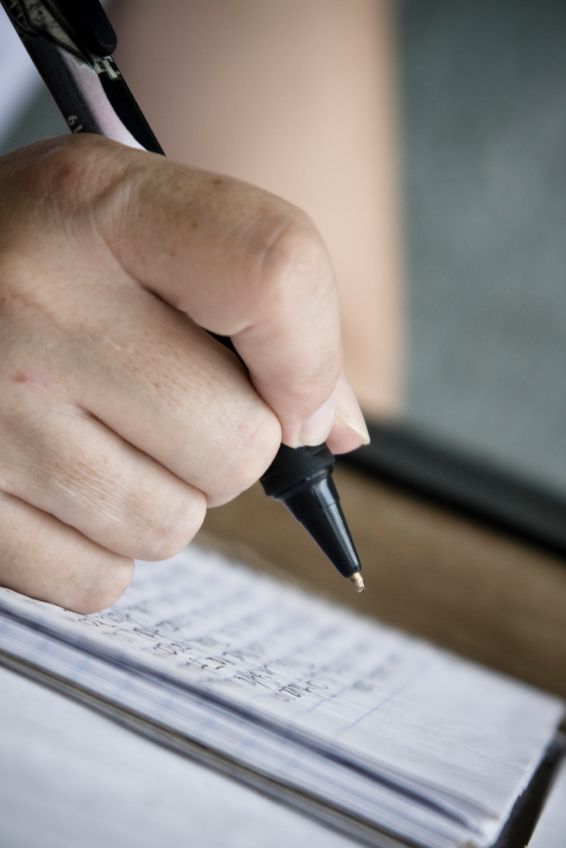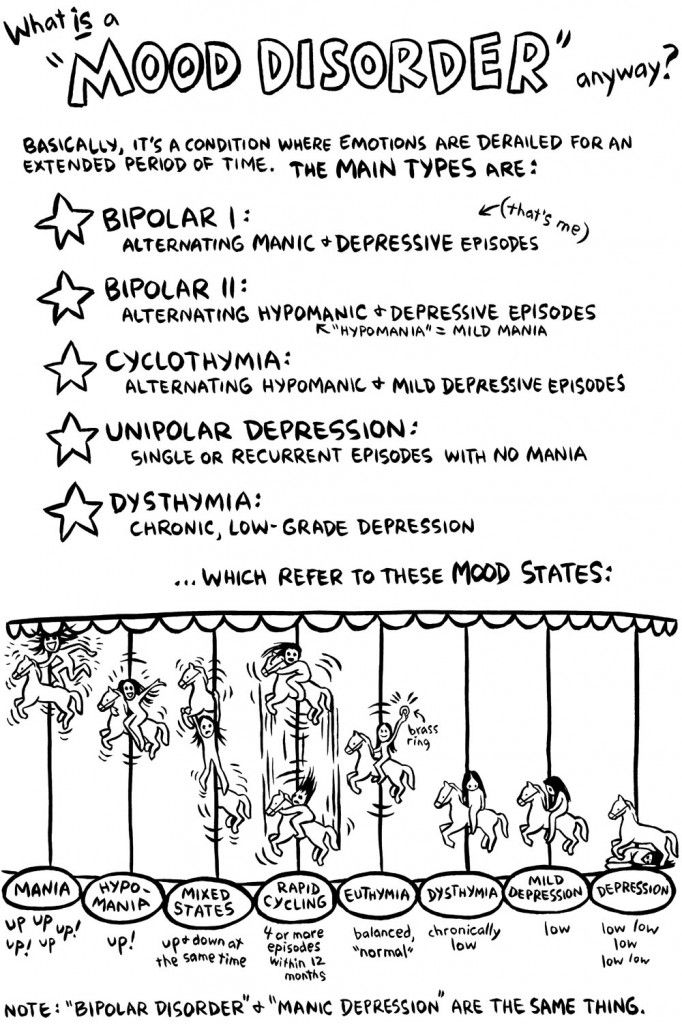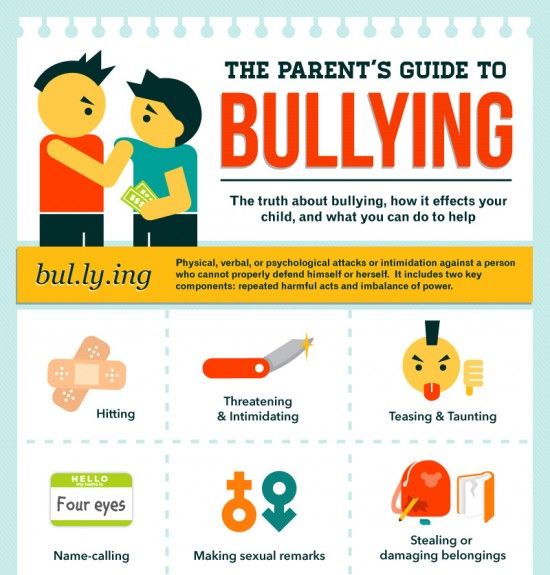The benefits of journaling
7 benefits of keeping a journal
What do Albert Einstein, Marie Curie, Frida Kahlo, Leonardo da Vinci, and Frederick Douglass all have in common? Each of these famous figures kept a journal or diary to record their experiences, thoughts, or feelings. Kahlo and da Vinci even used illustrations to express emotions and sketch out ideas.
How journaling can help you
From scientists to artists — and everyone in between — keeping a journal can be an important self-care practice. In fact, journaling can help you in the following ways.
Achieve goals
When you use your journal to write down your goals, you can keep better track of your intentions. This will help you stay accountable and serve as a reminder of what you need to do to reach your goals. Be sure to get specific.
Track progress and growth
If you make journaling a regular habit, you can see how much progress or growth you’ve made by revisiting previous entries.
Gain self-confidence
Seeing your progress can also give you a serious confidence boost. You can feel proud looking back at the challenges you faced and seeing how far you’ve come.
Improve writing and communication skills
Writing, like anything, improves with practice. When you journal every day, you’re practicing the art of writing. And if you use a journal to express your thoughts and ideas, it can help improve your communication skills.
Reduce stress and anxiety
Sometimes negative thoughts and emotions can run on a loop in our heads. This can be stressful when you’re dealing with a challenging situation. And it can even make your present situation feel worse. But if you stop and put your emotions down on paper, it can help you release negative thoughts from your mind. As you write, you may even come up with a solution you hadn’t thought of before.
Find inspiration
Leonardo da Vinci drew some incredible invention ideas in his journals. Like him, you can also use your journaling time to brainstorm or let your imagination run wild. The inspiration that may pop up while you’re writing or sketching might even surprise you.
The inspiration that may pop up while you’re writing or sketching might even surprise you.
Strengthen memory
The Journal of Experimental Psychology published research that shows how writing your thoughts down can reduce intrusive thoughts about negative events and improve working memory.* Even the simple act of writing something down lets your brain know you want to remember it. That’s why note-taking is such an effective practice when learning something new.
Explore the many different types of journaling
Ready to start but not sure how? Here are a few different types of journaling options to consider.
Stream of consciousness
Write down your thoughts as they happen. The words and thoughts don’t need to make sense, you’re simply capturing your thoughts in action.
Dream journal
Take note of your dreams each night as a way of getting in touch with your subconscious. Remember to make your journal entries right when you wake up.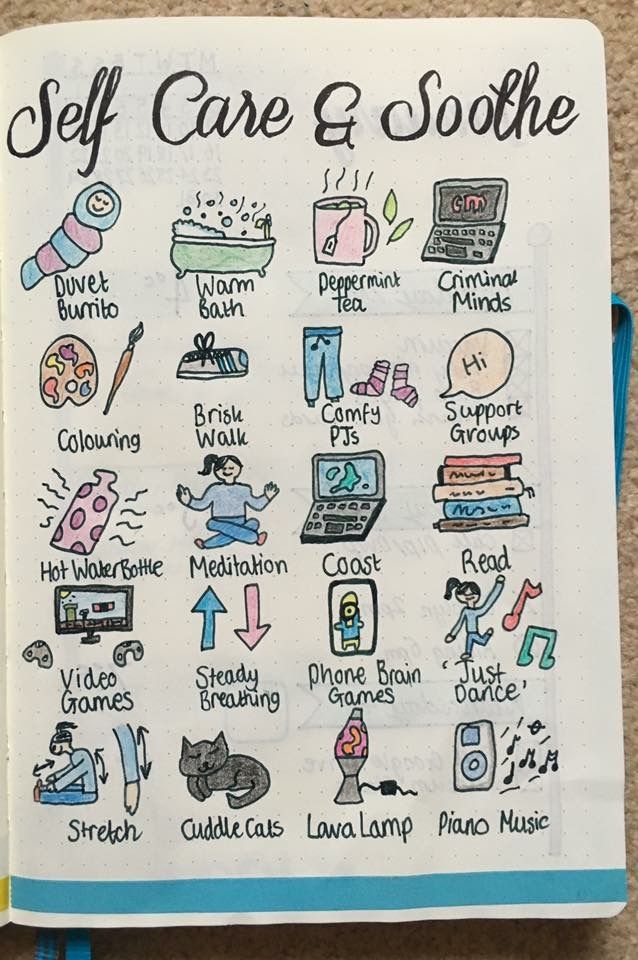
Food journal
Make a note of what you’ve eaten each day. This will help you be more mindful about the foods you choose to eat. If you’re struggling with a healthy weight-loss journey, documenting what you ate can offer insight into areas you may need to change.
Fitness journal
Keep track of your workouts so you can stay committed to an active lifestyle. The best part of keeping this type of journal is seeing the progress you made over time.
Gratitude journal
Before going to sleep, make a list of everything you were thankful for that day, week, or month.
Sketch journal
Express your feelings, thoughts, and ideas through illustrations, doodles, or sketches.
Day’s events journal
Keep track of your experiences throughout the day. Whether it’s making note of a funny conversation or describing a new recipe you enjoyed.
To-do list
Instead of keeping a running tally of to-do items in your head, write them down.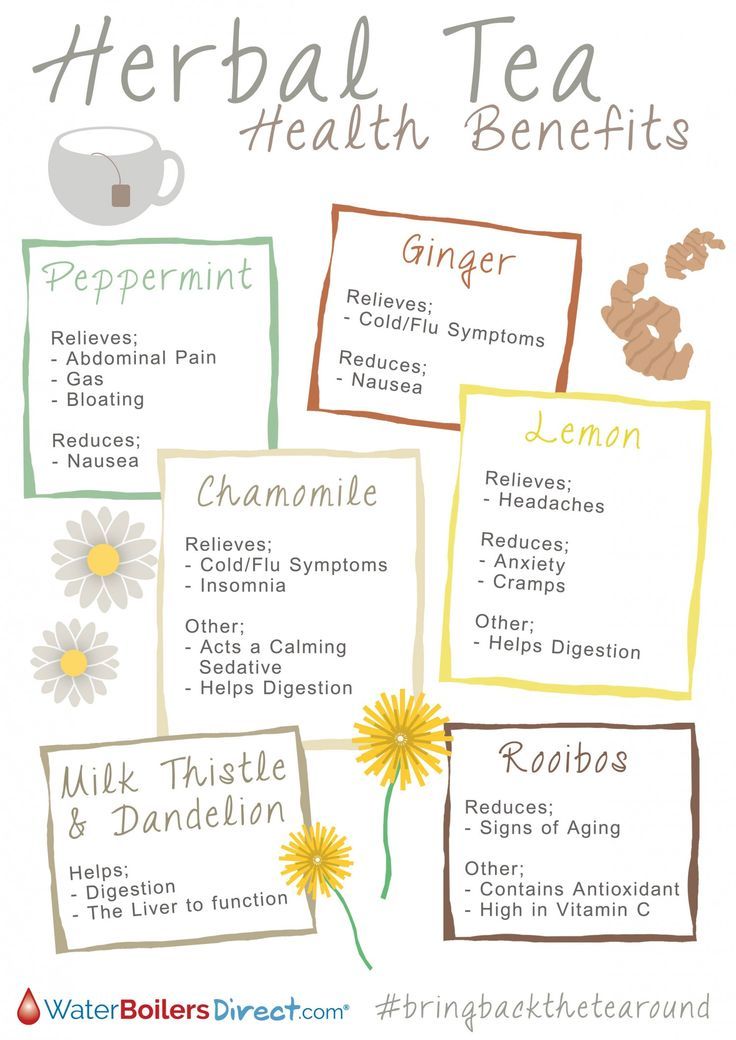 You can cross things off as you complete them and get a great sense of accomplishment.
You can cross things off as you complete them and get a great sense of accomplishment.
No matter which type of journal you decide to keep, remember there is no right or wrong approach. It’s all up to you. The simple act of taking the time to get in touch with your mind, body, and spirit is what’s truly important.
Explore mental health and wellness resources
Choose from a broad range of on-demand self-care resources, including self care apps to help with stress, sleep, anxiety, and more.
10 Ways Journaling Benefits Students
Editorial
Have you ever kept a journal—when you were traveling, as a way to record important events of your life, or as a tool for working through a difficult time? There are many reasons to keep a journal. If you’re a student, journaling can help you not only be more successful in class, but also have more confidence to take on life’s challenges. In this post, we discuss the benefits of journaling as well as different types of journals that can help you succeed in school.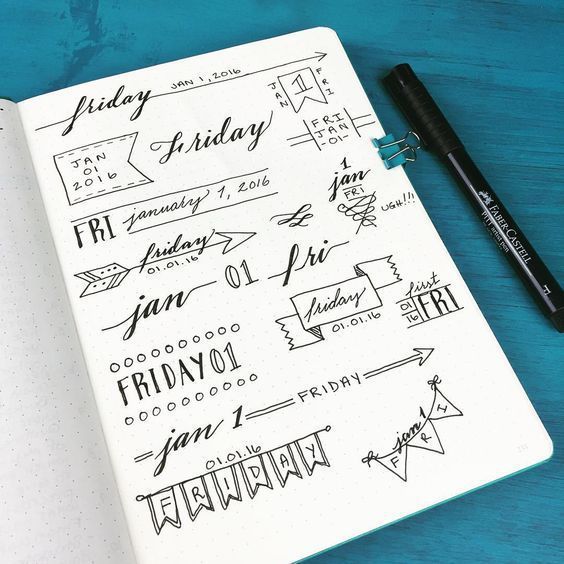
10 Benefits of Journaling
The advantages of journaling range from helping you reduce stress to propelling you forward in your pursuit of personal and academic growth.
1. Improves Mental Health
The act of taking pen to paper can help you relax, manage anxiety, cope with depression, ((University of Rochester Medical Center, “Journaling for Mental Health”: https://www.urmc.rochester.edu/encyclopedia/content.aspx?ContentID=4552&ContentTypeID=1)) and enjoy one of life’s pleasures (writing). By getting your thoughts down on paper, you can gain a deeper understanding of the causes of your own internal conflicts, while you also explore the external challenges you’re facing. Your problems, fears, and concerns will come to the surface so you can start to address them and visualize solutions.
Humor is a healer, too. Writing down the events of your life in a funny way, or recording amusing overheard bits of dialogue, can help you feel less anxious, since laughter can relieve stress.
2. Encourages Self-Confidence
Journaling can boost your self-confidence in a few ways. If you journal to keep your thoughts and schedule organized, you may find that being prepared reduces anxiety. Properly managing your time so that you can consistently check off those boxes on your to-do list can help reinforce for yourself that you’re a capable, intelligent student.
If you use your journal as a place to actively practice positive self-talk and combat negative thoughts, you may find that being kind to yourself also improves your overall relationship with yourself.
3. Boosts Emotional Intelligence
Journaling can help you make sense of how you’re feeling about a certain person or situation that is troubling or inspiring you. It can also help you understand your triggers. The process of writing down your thoughts as honestly and with as little judgment as possible allows for self-discovery. When you get to know yourself better, you develop a deeper understanding of your reactions, strengths, and weaknesses, as well as what environments help you thrive.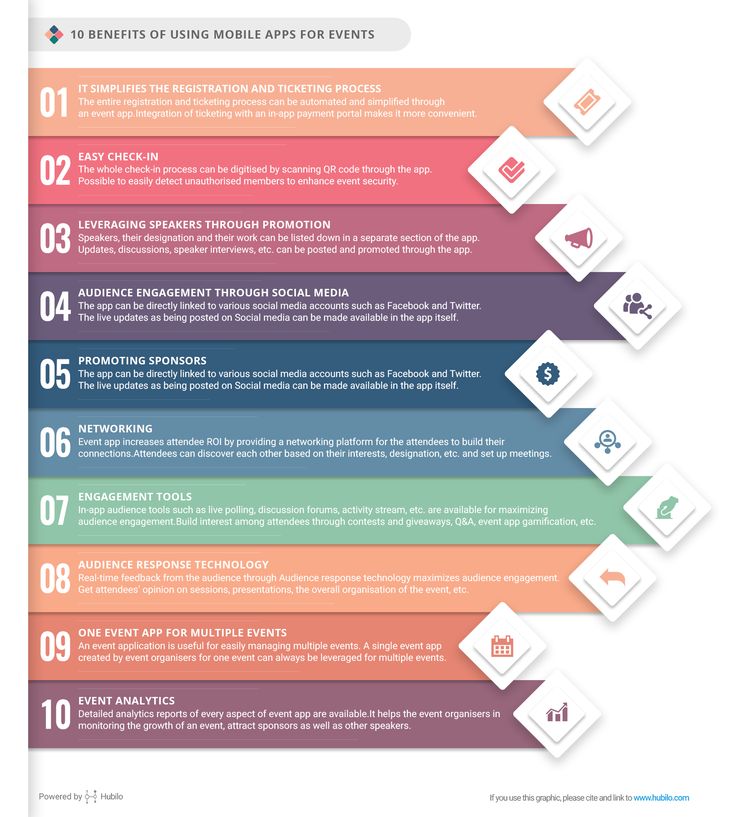
4. Helps with Achieving Goals
The physical act of writing down a goal can make it feel more real and can motivate you to achieve it. You can use your journal to not only craft specific goals, but also to monitor your progress as you take steps toward accomplishing those goals.
Writing SMART goals can help you achieve more. To set a SMART goal, write down how your goal meets the following the criteria:
- Specific: Make your goal as clear as possible.
- Measurable: Set milestones and benchmarks.
- Achievable: Ensure that your goal can be accomplished.
- Relevant: Ask yourself how achieving this goal will benefit you.
- Time-bound: Set a timeframe.
Use your journal to keep track of where you are in the process of achieving your goals and to troubleshoot any challenges that arise in the process.
5. Inspires Creativity
Writing a journal is a great way to channel your creative energy into expressing yourself, reducing anxiety, and solving problems.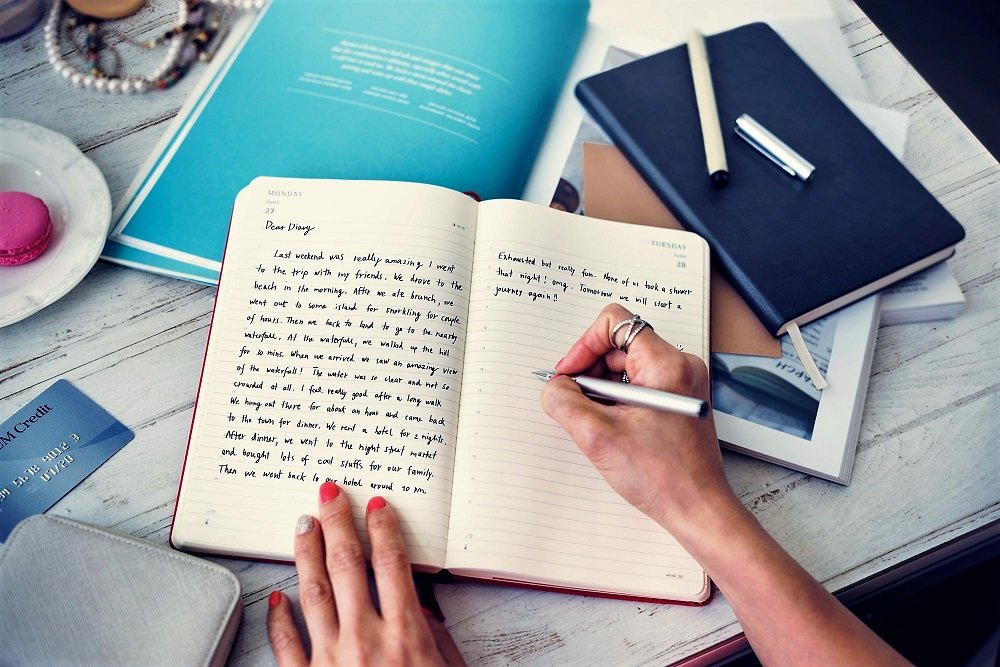 ((TeachThought, “The Significant Benefits Of Creativity In The Classroom,” Nov. 15, 2019: https://www.teachthought.com/learning/innovation-imagination-12-benefits-creativity/))
((TeachThought, “The Significant Benefits Of Creativity In The Classroom,” Nov. 15, 2019: https://www.teachthought.com/learning/innovation-imagination-12-benefits-creativity/))
If you’re the type of person who constantly has ideas coming to them, a journal is a great place to jot those down quickly so you don’t forget. You can revisit your notes later and write a more detailed entry around your idea.
If you’re looking for inspiration, you can try stream-of-consciousness writing or using thought-provoking prompts to help ignite creativity. Some artists keep a visual journal, sketching or painting images from their imagination or real life.
6. Boosts Memory
Research has shown that writing information down by hand is an effective way to commit ideas to memory. As a student, you will need to memorize information to pass your exams. Consider integrating journaling into your life as a way to improve your memory.
Also, if you record your thoughts, you can easily return to your notes and be reminded of insights and goals that may have otherwise faded from your memory.
7. Enhances Critical Thinking Skills
Journaling can help boost critical thinking skills. A study published in the Journal of Nursing Education noted that both students and faculty found reflective journaling to be helpful for developing critical thinking skills.
8. Heightens Academic Performance
Researchers reported that students who completed learning journals—where they related learned concepts to real-world applications and life experiences—performed better on exams. Students have also self-reported that expressive writing led to a higher grade point average.
9. Improves Physical Health
Expressive writing has been shown to provide significant benefits for individuals with a variety of medical problems. Self-reported physical health outcomes of expressive writing have included improved liver function, reduced blood pressure, improved immune system functioning, and improved athletic performance. ((Baikie et al., “Emotional and physical health benefits of expressive writing,” Advances in Psychiatric Treatment, Sept. 2005: https://www.cambridge.org/core/journals/advances-in-psychiatric-treatment/article/emotional-and-physical-health-benefits-of-expressive-writing/ED2976A61F5DE56B46F07A1CE9EA9F9F/core-reader)) It’s evident that journaling can not only improve mental health, but also physical health.
2005: https://www.cambridge.org/core/journals/advances-in-psychiatric-treatment/article/emotional-and-physical-health-benefits-of-expressive-writing/ED2976A61F5DE56B46F07A1CE9EA9F9F/core-reader)) It’s evident that journaling can not only improve mental health, but also physical health.
10. Strengthens Communication and Writing Skills
Writing down your ideas forces you to organize your thoughts. It can help you communicate better both on paper and verbally, as there is a strong connection between writing and speaking. ((Anastasia Belyh, “8 Ways to Stop Thinking About Journaling and Actually Start Journaling,” Cleverism, Sept. 24, 2019: https://www.cleverism.com/start-journaling/)) Journaling can also improve your ability to write well, particularly by improving your voice and vocabulary. ((Basma Issa Ahmad Alsaleem, “The Effect of “WhatsApp” Electronic Dialogue Journaling on Improving Writing Vocabulary Word Choice and Voice of EFL Undergraduate Saudi Students,” 21st Century Academic Forum, 2014: http://www. 21caf.org/uploads/1/3/5/2/13527682/alsaleem-hrd-conference_proceedings.pdf))
21caf.org/uploads/1/3/5/2/13527682/alsaleem-hrd-conference_proceedings.pdf))
Types of Journals Students Can Use for Growth
There are many different types of journals you can keep. Depending on your personal goals and how you like to work, you may find one particular format that feels right to you. You can combine methods or create a new one entirely. Below are several types of journals you can use for personal and academic growth.
- Bullet journal: Focusing on bulleted lists is a great method to use for personal organization and tracking progress. Use this journal to make to-do lists, brainstorm about projects, and record goals.
- Transfer journal: Write down concepts or information that you are learning in class and explore how you could draw on these (“transfer” them) in the future.
- 5 Ws journal: When you’re learning new information, or even trying to understand a real-life situation you’re in, it can be helpful to break the information down by the 5 Ws (who, what, when, where, why).
 This can help you organize the information and even commit it to memory.
This can help you organize the information and even commit it to memory. - Gratitude journal: Being a student can be stressful at times. When you’re feeling overwhelmed, it’s good to remember what you’re grateful for.
- Double-entry journal: Write down a concept or phrase on the left-hand side of a notebook page and record your thoughts about or reactions to that idea on the right-hand side.
- Question journal: Record questions you have about class material or internal questions that you hope to answer about yourself. Return to these pages as you explore and discover answers.
- Reading journal: Keep notes about your readings for class or about books you’re reading for pleasure. Write down ideas that stick out to you and information you want to remember. Writing down your thoughts and perspectives can help you remember what you read so that you can draw on this information in the future.
- Idea journal: Use your journal as a place to “brain dump.
 ” Write down whatever you’re thinking or feeling so that you can better process your thoughts and emotions. Letting the words out in a stream-of-consciousness flow can help clear your head.
” Write down whatever you’re thinking or feeling so that you can better process your thoughts and emotions. Letting the words out in a stream-of-consciousness flow can help clear your head.
Check out the visual below to find more types of journals, as well as prompts to help you get started.
Let's connect
We're here to support you on your educational journey.
Please complete our contact form. An enrollment advisor will reach out to provide information and answer your questions.
Recommended For You
news
Nurse Practitioner vs. Physician Assistant: Key Differences
Nurse practitioners and physician assistants are advanced healthcare practitioners with similar responsibilities, such as diagnosing illnesses and prescribing medications. However, their training and paths toward certification differ in significant
Posted: September 11th
news
20+ Occupational Therapy Specialties to Advance Your Career
As an occupational therapist (OT), you will have the opportunity to specialize in one or more areas over the course of your career.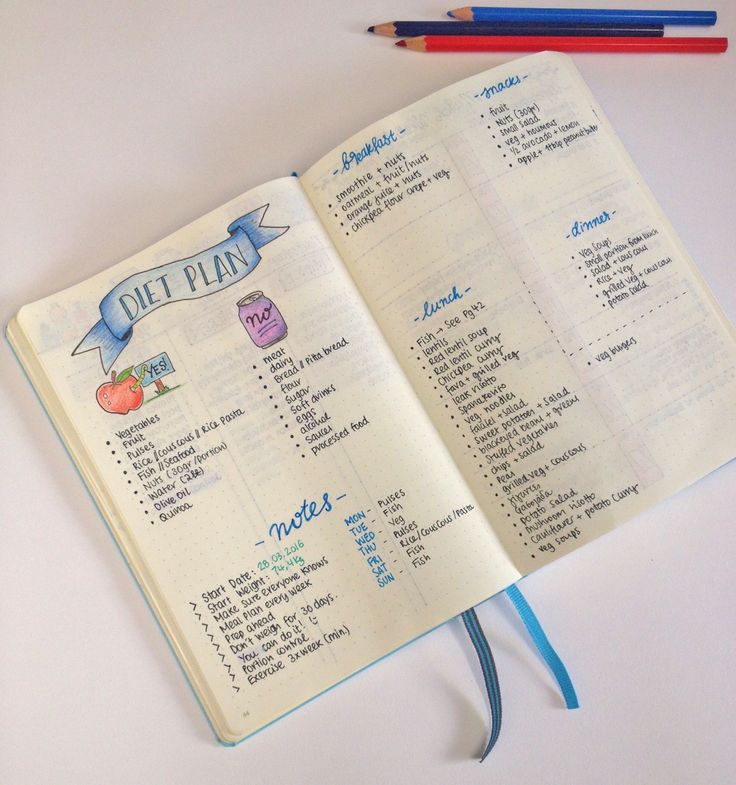 Adding a specialty demonstrates your knowledge of
Adding a specialty demonstrates your knowledge of
Posted: July 26th
news
Student Associations COTAD and SPEAK Promote Diversity
In January 2021, when the COVID-19 pandemic was weighing heavy on society, students were learning at home, and the Black Lives Matter movement was inspiring demonstrations for equality around the
Posted: July 26th
news
Occupational Therapy vs Physical Therapy: What Are the Differences? | USAHS
Physical therapy and occupational therapy are both rehabilitative disciplines that require hands-on work—leading many people to believe they are interchangeable. However, these professions vary greatly. When deciding which healthcare career
Posted: July 19th
news
Searching for Equity: The Library’s LGBTQIA2+ Resources
For Pride Month, we’re focusing the USAHS blog on topics relating to the LGBTQIA2+ and other intersectional communities.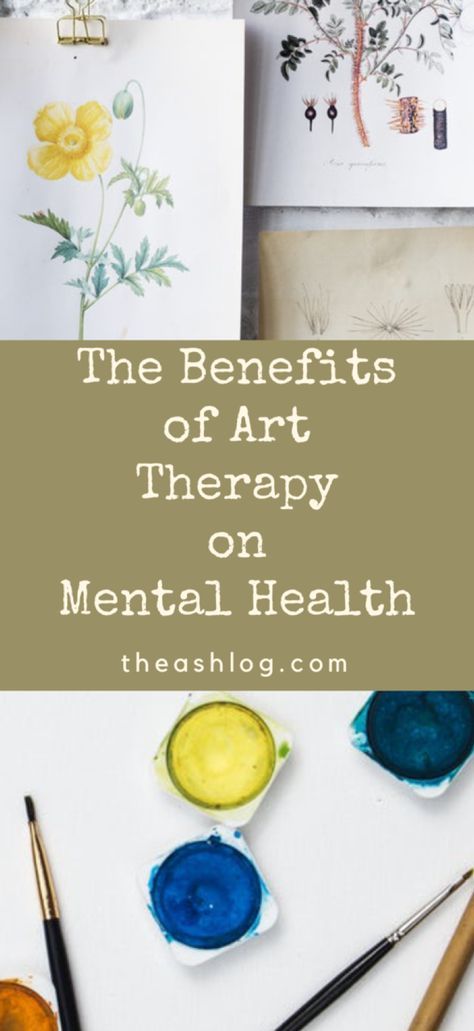 For this post, we spoke to Matthew Chase, MASP, MLIS, a
For this post, we spoke to Matthew Chase, MASP, MLIS, a
Posted: May 31st
news
A Day in the Life of a Nurse Manager
As we celebrate Nurses Month, we at USAHS wanted to get a sense of what a typical workday is like for a nurse manager. We asked alum Ahnnya Slaughter, DNP,
Posted: May 24th
5 reasons to start keeping a personal diary
This text was written in the Community, it retains the author's style and spelling.
Polina Chernova
Author profile
How journaling affects our thinking and stress levels. Where to start and what format is best for this?
An evening, a stack of textbooks, unfinished math homework, and a personal diary that seems much more important at this moment than schoolwork—so many emotions and thoughts need to be written out!
Many of us kept diaries as teenagers. What if we revive this habit? Contrary to stereotypes, diaries are kept not only by teenagers, but also by adults, mature people. Someone was offered to lead by a psychologist, someone started doing it on their own initiative.
Someone was offered to lead by a psychologist, someone started doing it on their own initiative.
Why journaling is useful
This is a safe space for you to physically express your thoughts. We do not always manage to share our innermost things with loved ones: someone is not around and busy with other things, someone may not understand us, but we want to leave something only for ourselves. A diary is that personal and intimate space where we can be free in wording, are not afraid to be misunderstood and write whatever we think is necessary.
It helps to structure our thoughts. When it seems that there is a mess in the head and one thought is ahead of another, writing practices help to write down everything that haunts. So we can clearly see what exactly worries us and what feelings overwhelm us. Our brain is no longer so loaded, and what is written provides new food for thought.
This is how we live emotions better. Sometimes we don't have the courage to admit to ourselves how we feel. Maybe this is disappointment in a loved one, anxiety for one's own future, or broken hopes. Keeping a diary and writing down everything important that happens to us, it will be difficult to avoid the truth. By voicing our emotions, it is easier for us to deal with them. In this way, we allow and allow ourselves to feel them, and then analyze where they come from and how we can work with them.
Sometimes we don't have the courage to admit to ourselves how we feel. Maybe this is disappointment in a loved one, anxiety for one's own future, or broken hopes. Keeping a diary and writing down everything important that happens to us, it will be difficult to avoid the truth. By voicing our emotions, it is easier for us to deal with them. In this way, we allow and allow ourselves to feel them, and then analyze where they come from and how we can work with them.
All this applies to both negative and positive emotions. Scientists have proven that by “training” to see positive moments, we accustom the brain to such thinking. Noticing in the diary all the good things that happened to us during the day, we begin to pay more attention to the pleasant little things in life, thereby living positive emotions more fully and brighter.
We learn to formulate and "voice" our thoughts and desires. Regular journaling develops an important skill in us: to be able to listen to ourselves, our feelings, psychological and bodily signals. We not only notice them, but also begin to embody them in reality.
We not only notice them, but also begin to embody them in reality.
A more complete picture of life is being formed. You can clearly see what life consists of in this period, in which areas we have succeeded, and in which, on the contrary, we have let go of control and given weakness.
Together, all this gives tangible results. Stress levels are reduced and the mind becomes clearer. By noticing successfully completed tasks and summing up the results of the work done, in a month you can conditionally get rid of the feeling that “not enough” is being done and understand that in fact we are great fellows. This helps build healthy self-esteem.
How to keep a diary correctly
I would recommend making this practice a regular practice, and when choosing a format, focus on your own feelings: try to imagine what these entries would ideally look like for you? What seems to be the most important? Consistency and regularity will make this practice more effective.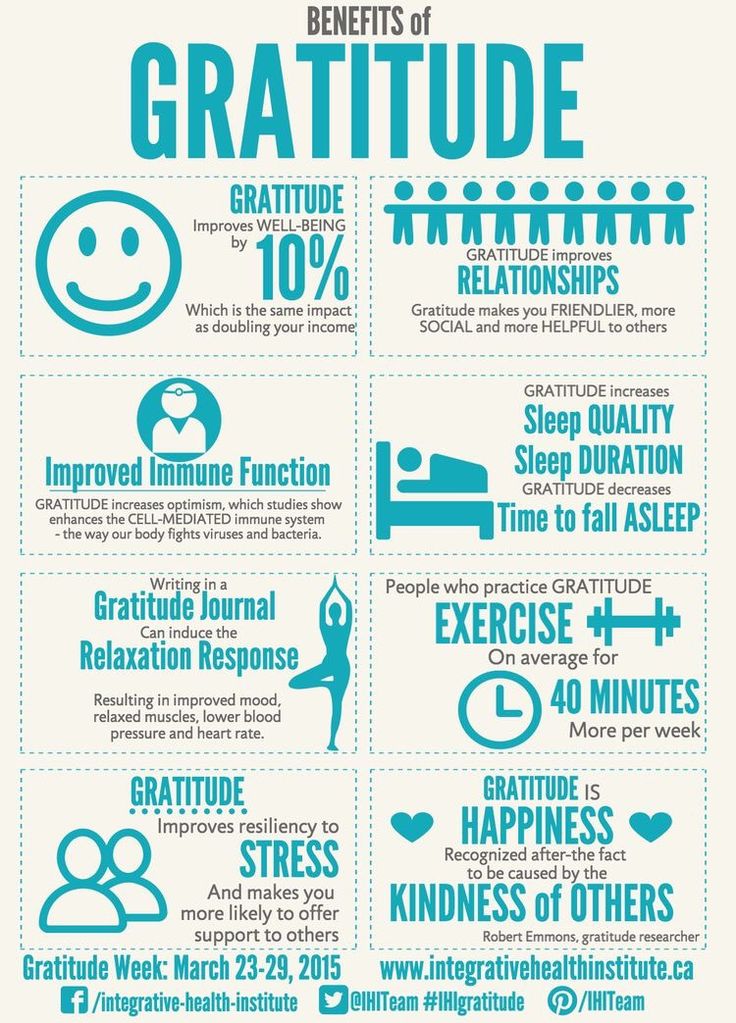 It is best to keep a diary in the evenings. So you can capture the results of the day and analyze them without missing anything.
It is best to keep a diary in the evenings. So you can capture the results of the day and analyze them without missing anything.
At first, it may be unusual to expose your feelings on paper, but over time it will become easier and it will become a pleasant routine. Try starting with the following questions:
- “What was your mood during the day today?”;
- "What influenced him?";
- "How do I feel now?";
- "What good happened today?";
- "What things have been done today?";
- "Is there anything that worries me at the moment?"
You can identify other issues for yourself that will be meaningful to you. On the Internet, you can also find diaries that are created specifically for writing practices. They are divided into thematic spreads with questions already prepared to make it easier for you.
Go beyond paper. You can take notes both on your phone and on your laptop. Or you can create a blog. Choose the format that you like. The main thing is your comfort.
You can take notes both on your phone and on your laptop. Or you can create a blog. Choose the format that you like. The main thing is your comfort.
Conclusions
Journaling can become an enjoyable part of your daily routine. But if this practice does not suit you, do not be discouraged - this is absolutely normal. Be sensitive to yourself and your desires!
Readers write. Here they share their experiences and tell their financial stories
Tell your story
Why journaling is good for your health
April 2, 2016 Inspiration
Keeping a diary can significantly improve your well-being: sleep and blood pressure normalize, the immune system begins to function better, even wounds heal faster. And if you have long wanted to start a personal diary, but did not know where to start, in this article you will find 8 useful recommendations.
Michael Grothaus
Writer, freelance journalist. Founder and CEO of SITU Scale.
Founder and CEO of SITU Scale.
I have been keeping a personal diary for many years. Twelve, to be exact. When I tell people that I keep a diary, some people start to think that these are some notes related to work. Others imagine a teenage version in the spirit: “Dear diary! Now I feel…” And that’s it.
When I first started to keep a diary, the first page was a real torment. But today, journaling is one of my favorite parts of my day: writing down my thoughts makes me feel better both physically and mentally.
Surprisingly, improving your well-being by keeping a diary is not just psychosomatic. This work really improves the health of those involved in it. According to Dr. James Pennebaker, a psychologist and a leading expert in expressive writing, journaling strengthens immune cells, the T-lymphocytes. Thanks to this, mood improves, social activity increases. It also has a beneficial effect on the quality of close relationships.
Most of the research on expressive writing is done with measures of physical health to track changes. As a result of numerous scientific experiments, it became known that thanks to keeping a diary, the immune system begins to function better, blood pressure normalizes, sleep improves, and stress decreases. After a few months of keeping a diary, people begin to visit doctors less frequently. In other studies, this activity has been found to promote faster wound healing and greater mobility among people with arthritis. And this list goes on.
As a result of numerous scientific experiments, it became known that thanks to keeping a diary, the immune system begins to function better, blood pressure normalizes, sleep improves, and stress decreases. After a few months of keeping a diary, people begin to visit doctors less frequently. In other studies, this activity has been found to promote faster wound healing and greater mobility among people with arthritis. And this list goes on.
So what is journaling? It is a combination of fact-based personal reporting with an exploration of one's inner experiences, sometimes irrational, but always important.
giphy.comThere are weeks when I write every day, and sometimes I don't write a single word for a whole month. The point of keeping a diary is not only to organize your thoughts, but you can just think them over carefully, and this will also bring certain benefits. When keeping a diary, it is the act of writing down thoughts that brings the greatest result.
When you take notes, the left, rational hemisphere of your brain is at work. While it is busy, the right hemisphere can do what it does best: create, anticipate, and feel. Keeping a diary removes all psychological blocks and allows you to use all the possibilities of our brain to better understand ourselves and the world around us.
While it is busy, the right hemisphere can do what it does best: create, anticipate, and feel. Keeping a diary removes all psychological blocks and allows you to use all the possibilities of our brain to better understand ourselves and the world around us.
Maud Purcell
psychotherapist, writing expert
Already intrigued? I think yes. But maybe you're like me 12 years ago when I didn't know where to start. Therefore, I offer the following 8 tips that will help you master the art of journaling in the shortest possible time.
1. Use pen and paper
The modern world is all about keyboards and touch screens. But when it comes to journaling, there are more advantages to a regular pen and paper.
I have noticed that most of my patients intuitively understand that writing thoughts by hand is more effective than using the keyboard. And research confirms this. It turns out that while writing, the reticular activating system is stimulated - that area of the brain that filters and brings to the fore the information on which we focus.
Maud Purcell
Handwriting has additional benefits. This keeps us from editing our own thoughts. Although many people in their 20s and 30s have already lost the muscle memory of handwriting and this activity may seem slow and uncomfortable to you, it will not be long before you again feel comfortable writing by hand.
When I can convince young people, especially 20 year olds, to take good old cursive notes, they are always amazed at the result, because this activity is really calming and helps to cope with problems.
Mod Purcell
2. If you don't like writing with a pen, find the right tool for you. There is nothing wrong with this.
Fortunately, today there is a huge variety of options. Personally, I prefer freehand journaling using a V5 Hi-Techpoint pen with a very thin refill. Yes, only this particular option. I think it's the perfect tool to help my thoughts flow from my head to the pages of my Moleskine notebook.
But if paper and pen are not for you, look to their technological counterparts. Both standard editors (Word from Microsoft or Pages from Apple) and more minimalistic solutions like Ommwriter will do. Perhaps you prefer touch screens. In general, look for the most convenient solution for yourself.
Both standard editors (Word from Microsoft or Pages from Apple) and more minimalistic solutions like Ommwriter will do. Perhaps you prefer touch screens. In general, look for the most convenient solution for yourself.
3. Set a reasonable limit for yourself
giphy.comPeople used to set themselves a writing limit, like 3 pages every day. But experts agree that a time limit would be a more effective solution when keeping a diary.
Think rationally about how much time per day you can devote to this activity in your busy schedule. Even if it's only 5 minutes at first.
The time limit helps people focus on a specific goal when they start journaling. Seeing 3 blank pages in front of you can be difficult, and the case will end before it even starts. And the time limit will not seem like a difficult test.
Pennebaker recommends writing 15 to 20 minutes a day. The only rule is to do it all the time.
4. You don't have to be Shakespeare
Most aspiring writers (regardless of whether they write diary entries, an article for a popular magazine, or a long novel) tend to make the mistake of believing that everything they write must be deep and sensual. And when you start journaling with this delusion, be sure that it will lead to failure. Such activity is directed outward, to others, and you should keep a diary for yourself personally. Genuine depth comes naturally, by itself, even by accident. Pretentiousness occurs when people deliberately try to appear smarter.
And when you start journaling with this delusion, be sure that it will lead to failure. Such activity is directed outward, to others, and you should keep a diary for yourself personally. Genuine depth comes naturally, by itself, even by accident. Pretentiousness occurs when people deliberately try to appear smarter.
Shakespeare was a great writer because of his natural talent and careful study of human nature. But what's good for him doesn't have to be good for you. You do not need to demonstrate your literary talent. You just need to write.
I advise my patients to forget about spelling, punctuation and just pour their stream of consciousness onto paper. So keeping a diary will help bring to the fore information that is stored a little deeper than consciousness. Let her pour out.
Maud Purcell
5. Don't edit
One of the purposes of journaling is to explore areas of your mind that you may not want to let out. Diary entries are not articles. No one will check your spelling, grammar, punctuation or content structure. When you edit, you start to think and focus on the presentation rather than your thoughts.
When you edit, you start to think and focus on the presentation rather than your thoughts.
The essence of keeping a diary is to write without thinking. By thinking, we interfere with our intuition, and, consequently, the whole meaning of the diary is lost. The diary can help us explore those paths that we cannot consciously discover. We can find extremely interesting topics if we stop thinking for a while.
6. Journal in the same place every day
giphy.comYou don't have to lock yourself in a secluded ivory tower to write down your thoughts. However, if you have a specific place where you will keep a personal diary, this will help to create better introspective notes.
I have a favorite café in London where I enjoy writing. Even when it gets noisy from the clinking of cups and talking patrons, I find the background noise soothing. He helps me immediately tune in to the right mood, and I plunge into my diary. If cafes aren't for you, try writing in a quiet room at home or on a park bench.
Make it an inviting place where it is cozy, where there are things that inspire you, where you can see, touch or smell them: flowers, sentimental photographs, memorabilia or pleasant drinks - your choice.
Mod Purcell
7. Leave room for content
When I buy a new Moleskine, I always skip the first two or three pages before starting the diary. When I fill out the entire notebook (usually for a year), I wait for a while, and then reread it.
When re-reading, I highlight notes or thoughts that I think are important, note page numbers or the date of writing, and then put them at the very beginning of the diary. This gradually builds up the content, thanks to which I can easily find important records. It helps me a lot when I'm in trouble. I can see how I have faced problems in the past that seemed insurmountable to me, but which I was eventually able to overcome.
Experts do not agree on whether a table of contents is needed in the diary or not.
“Some people like structure, some people don't,” says Pennebaker. Some people like to read what they have written, some don't. The point is to find the way that works for you."
Purcell has a different point of view: “I like this idea. Of course, some parts of the diary will seem more relevant to your life as a whole. And quick access to these notes will be useful, especially in confusing or stressful moments in life. It's great to be able to remind yourself how you've dealt with seemingly hopeless situations in the past."
8. Keep your diary away from prying eyes
Find a safe and secure place for your diary. For this activity to be really effective, you need to feel as free as possible and write down things that you can’t even tell your best friend.
A personal diary is not a letter to another person. It is not a document by which others should judge you. Do you want to write a book? Fine. Write a book. The diary is just for you. If what you write might hurt the feelings of others or damage your reputation, destroy the diary or hide it in a safe place.